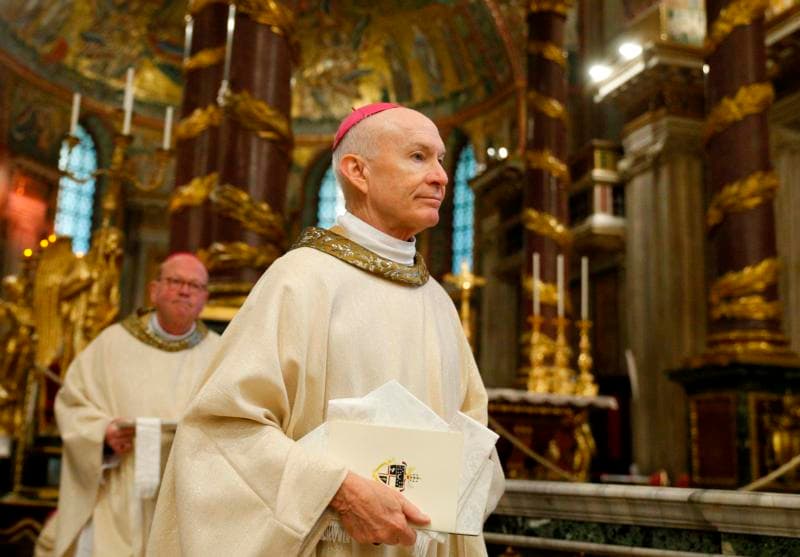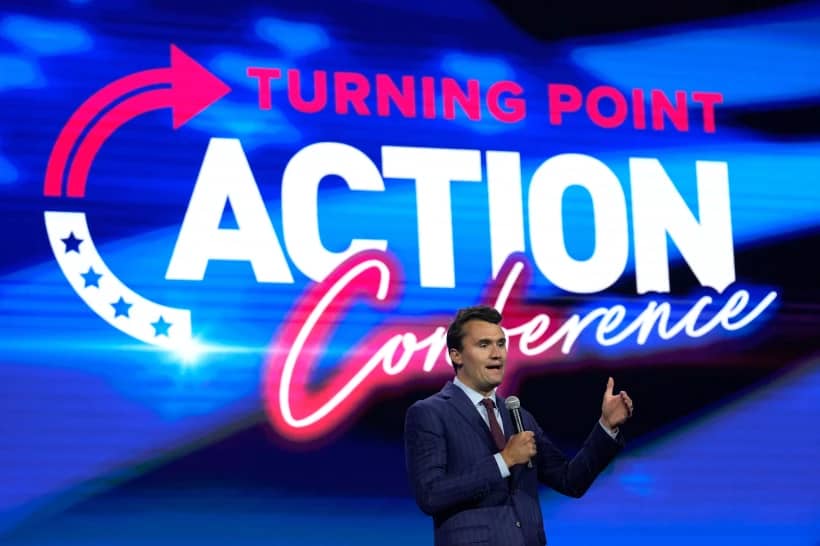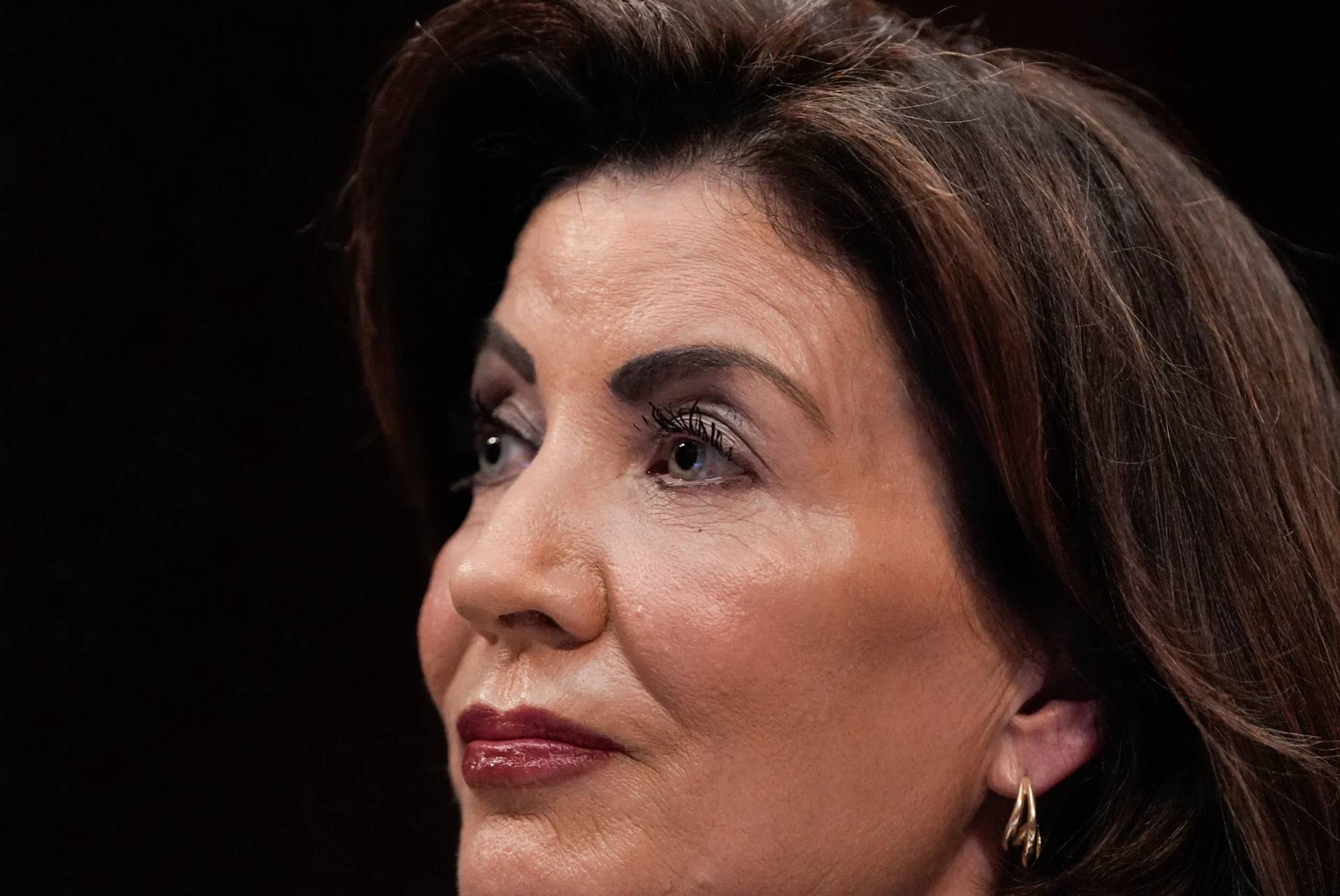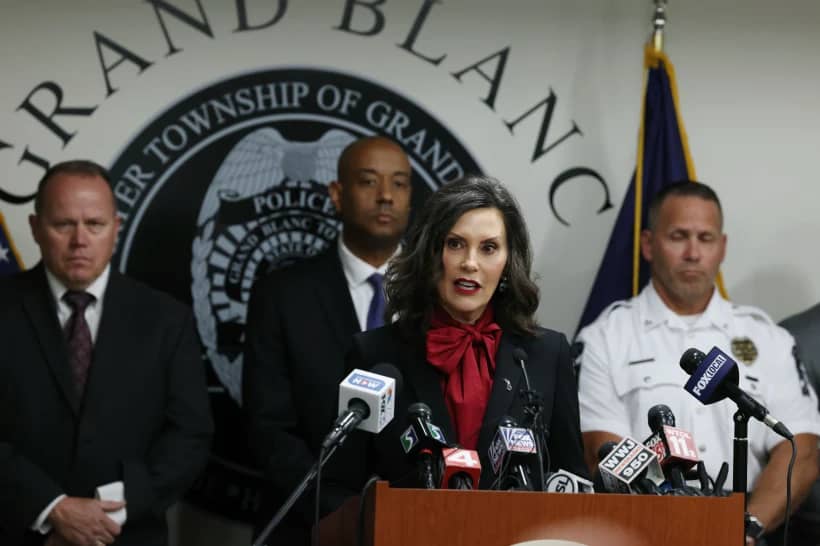OMAHA, Nebraska — People will start cautiously gathering to pray in many Nebraska houses of worship soon for the first time since coronavirus restrictions were imposed, although some congregations won’t rush back and others are still deciding how to proceed.
Nebraska Gov. Pete Ricketts announced plans last week to relax directed health measures to allow worship services, with some social distancing restrictions still in place. On April 25, the Catholic Archdiocese of Omaha said Masses and other forms of public liturgy will be allowed again beginning May 4, a Monday, although the archbishop is leaving the decision up to pastors and their parish councils if they are in areas where there is a high prevalence of infection.
“I am grateful that soon we will be able to welcome parishioners back to our churches for Mass,” Archbishop George Lucas said. “We will work within the necessary restrictions for everyone’s safety.”
According to the Omaha World-Herald, pastors are asked to schedule Masses over more days of the week to spread out attendance, and people at high risk for coronavirus are encouraged not to attend, said Deacon Tim McNeil, chancellor of the archdiocese.
Meanwhile, in Hall County, home to an ongoing coronavirus outbreak, Grand Island Bishop Joseph Hanefeldt is seeking advice from his council of priests on tailoring an approach to fit the varying levels of infection in the diocese’s large expanse of Nebraska, stretching from the Platte River north to the state line and west to Wyoming. That includes some counties that have had no cases, some that have had no new cases for a couple of weeks, and some places such as Grand Island and Lexington that have deadly outbreaks still on the rise.
“How we’re going to do this is unknown,” Hanefeldt said. “I would say there are a number of people who are probably very grateful that the governor is open to doing this. There are other people who think it’s reckless in some ways, and everything in between. … I’m seeking priests’ input to try to formulate a policy that would be sensitive to the differences of infection rates right now.”
At Christ Community Church in west Omaha, the Rev. Mark Ashton, lead minister, said the church hasn’t decided when it will start having services in its worship center again. The church has about 3,000 members, and its worship center holds about 1,600.
“If we were to do appropriate social distancing, really we’re talking more like about 400 or 500 would be able to fit in there,” Ashton said. “So we’re asking some strategic questions about people’s worship experience and then we would have to expand the number of services to be able to accommodate a similar number of people.”
He said Christ Community “has a really strong online option. So we don’t feel like we have to rush to make our changes, and we’re taking the temperature of our leaders and our people, not literally, but kind of emotionally, to determine what a healthy course of action would be … and to be able to both protect those who are vulnerable and engage in worship services that feed the soul.”
Ashton said that he has “a world of respect for our governor and our mayor doing this process in a reasonable way that treats adults like adults and makes appropriate steps at the right times for the right kinds of measures,” and that he is “grateful for the freedom that they’ve given faith communities.”
The Rev. Portia Cavitt, pastor of Clair Memorial United Methodist Church in North Omaha, planned to discuss the governor’s new measures in a Zoom meeting with church members Sunday afternoon. She said the 400-seat sanctuary should be able to accommodate people at safe social distances.
At St. Paul United Methodist Church in Benson, the Rev. Stephanie Ahlschwede said she’s concerned the new directive “could give people a false hope.” She said St. Paul has four services on weekends and a guest congregation has another, bringing 450 people into four worship spaces. She’s not sure that can be done safely by early May.
“Church is a second home, or home place, for many people,” she said. “While the governor’s laid out this way people could gather, it doesn’t spell out some logistical details, such as how do we care for doorknobs and surfaces, for cleaning bathrooms, for the things that people really love like coffee hour?”
The synagogue, mosque and Christian church on Omaha’s Tri-Faith Initiative campus were among the first congregations in Nebraska to stop holding public services.
“My guess would be that we will not lead to open, that we will move very, very slowly because we’ve had a number of people in our community who have been impacted by the virus,” said Wendy Goldberg, Tri-Faith’s executive director.
She said all three congregations have seen a rise in participation in services while they’ve been having them online.
Beth El Synagogue in Omaha is not in a hurry to resume in-person services.
“I see no reason for us to rush back when there is no compelling reason to do so, certainly none that is more important than the health and wellbeing of our congregants and staff,” Rabbi Steven Abraham wrote to Beth El members.
The Governor’s Office said the state will provide a document with instructions on how faith communities can comply with the new directed health measures to come.













